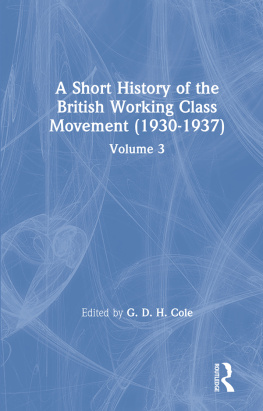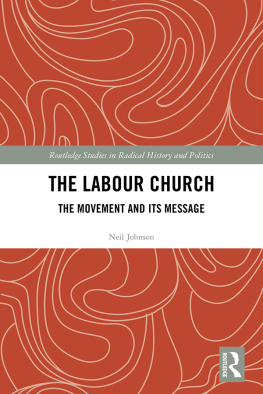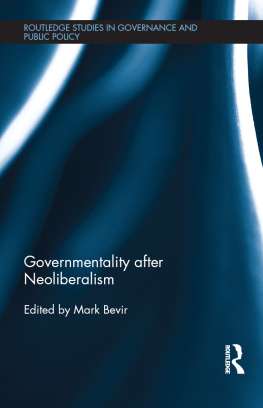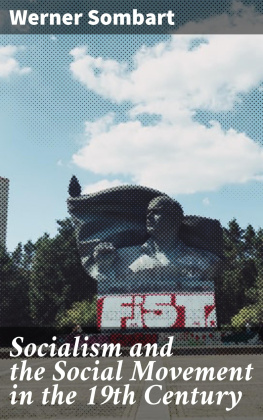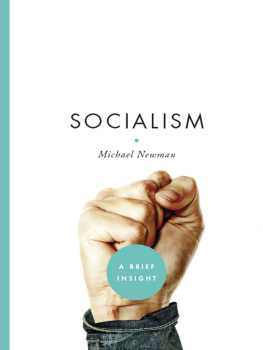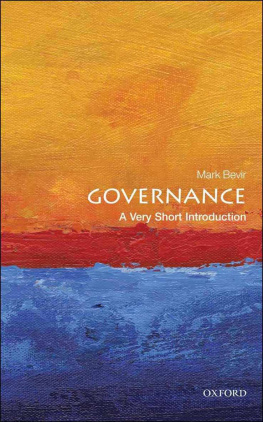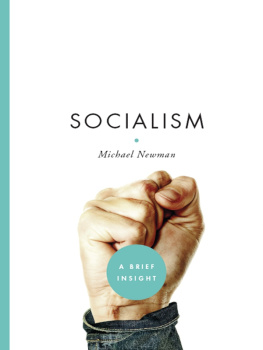
The Making of British Socialism

The Making of British Socialism
Mark Bevir
PRINCETON UNIVERSITY PRESS
PRINCETON AND OXFORD
Copyright 2011 by Princeton University Press
Requests for permission to reproduce material from this work should be sent to Permissions, Princeton University Press
Published by Princeton University Press, 41 William Street, Princeton, New Jersey 08540
In the United Kingdom: Princeton University Press, 6 Oxford Street, Woodstock, Oxfordshire OX20 1TW
press.princeton.edu
All Rights Reserved
Library of Congress Cataloging-in-Publication Data
Bevir, Mark.
The making of British socialism / Mark Bevir.
p. cm.
Includes bibliographical references and index.
ISBN 978-0-691-15083-3 (hardcover : alk. paper)
1. Socialism--Great Britain--History. 2. Labor unions--Great Britain--History.
I. Title.
HX241.5.B4 8 2011
British Library Cataloging-in-Publication Data is available
This book has been composed in Sabon
Printed on acid-free paper.
Printed in the United States of America
10 9 8 7 6 5 4 3 2 1

To Bill and Phebe
Contents

Preface

THIS BOOK HAS BEEN a long time in the making. I first began working on the history of British socialism in the late 1980s. Back then, Margaret Thatchers governments loomed large over my political world. Critics portrayed socialism as a discredited statist ideology. Even socialists sometimes implied that it was an outdated class-based ideology. Yet, I wanted to recapture the diversity of socialism and thereby find inspiration for a radical democratic and transformative politics that rejected market individualism for egalitarian fellowship. I thought British socialists needed a new narrative with which to respond to neoliberalism.
One reason this book has been so long in the making is that in the 1990s the Labour Party provided just such a narrative. New Labour presented itself as adhering to historic socialist ends while adopting new means. The old socialist means had allegedly been made irrelevant by the rise of new times. The advancement of socialism now supposedly required supply-side economics, capacity building, and networks and partnerships delivering services. Although I was impressed by the energy and vigor of the New Labour project, its narrative and politics were not what I had had in mind. I got distracted from the history of British socialism by the desire to come to terms with its present.
The reader will find that this book still echoes my early aim of providing a more diverse portrait of socialism. Socialism has never been just about class-based politics and state intervention. It has never been the caricature depicted by Mrs. Thatcher; nor has it been the preserve of the Labour Party and its leaders. On the contrary, British socialism has always included radical democratic, pluralist, and utopian strands. Many socialists have promoted nongovernmental visions of personal and social transformation. They have envisaged more simple and cooperative ways of life.
I hope this book will help to correct widespread misconceptions about the history and nature of socialism. I also hope that it will contribute, even if only ever-so slightly, to attempts to forge more fulfilling ways of living with one another and the natural world of which we are part.
Acknowledgments

BECAUSE THIS BOOK has been a long time in the making, my list of debts is correspondingly long. I began working on the history of British socialism while studying for a D.Phil. at the University of Oxford. Jos Harris and Alan Ryan supervised my thesis, and I am grateful to them for their light touch, advice, and support.
The Economic and Social Research Council funded my original doctoral research. Later financial support came from the University of Newcastle, the Leverhulme Trust, the Harry Ransom Humanities Research Center, and the University of California, Berkeley. Without their support, I could not have visited and revisited archives, studied rare newspapers and pamphlets, or found sufficient time to think and write.
As I continued with my research, I published pieces as specialist academic articles. These articles are the bases for several chapters in this book. For permission to draw on them, I thank the editors and publishers of English Historical Review, Historical Journal, Historical Research, History of European Ideas, History of Political Thought, International Review of Social History, Journal of British Studies, Journal of the History of Ideas, Journal of Modern History, and Review of Politics.
I have had so many fruitful conversations about British socialism with so many people that I would be bound to neglect some of them were I to attempt to list them all; but I want specifically to mention James Meadowcroft and Frank Trentmann for reading and commenting on several of my earlier writings on British socialism. More recently, Ian Malcolm was both an effective and a perceptive editor. I thank him and all the people at Princeton University Press who have helped to produce the final book.
As always, I am immensely grateful to Laura; she drove me up to Oxford when I first went there, and now, all these years later, she has prepared the index of this book.
Mum and Dadmy books, especially this one, took too long; thanks, thanks for everything.
Abbreviations

BLPES | British Library of Political and Economic Science |
BSP | British Socialist Party |
DF | Democratic Federation |
HRC | Harry Ransom Center |
ILP | Independent Labour Party |
LCC | London County Council |
LRC | Labour Representation Committee |
MP | Member of Parliament |
MSL | Manhood Suffrage League |
NRL | National Reform League |
SDF | Social Democratic Federation |
TUC | Trades Union Congress |

The Making of British Socialism
CHAPTER ONE

Next page

